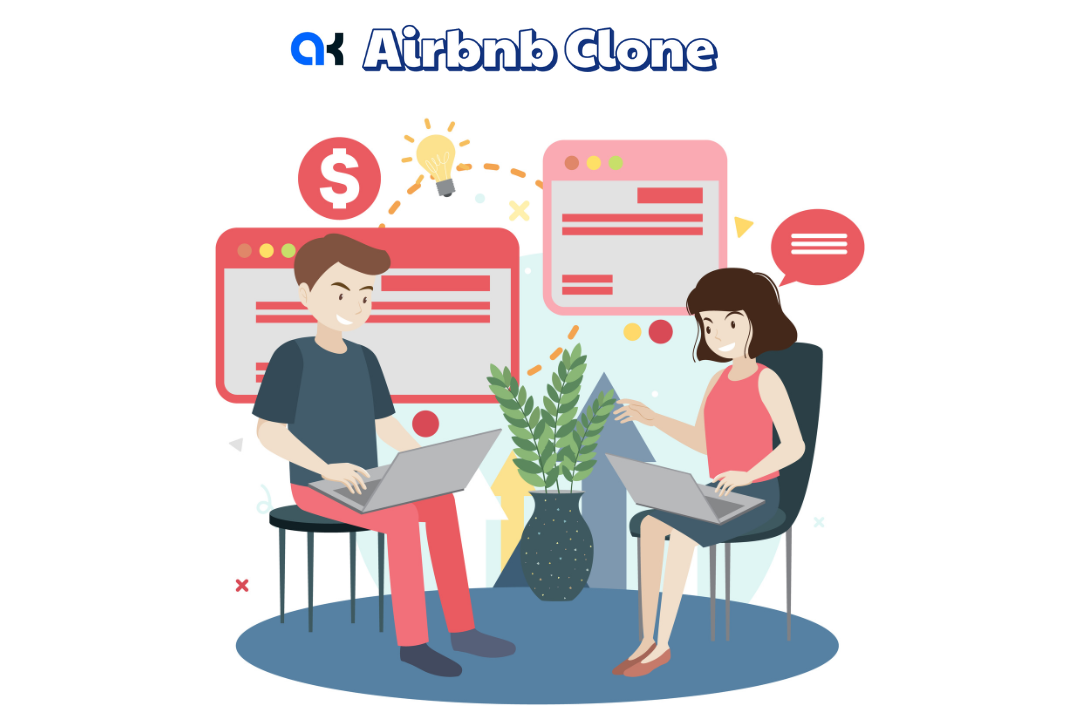The rise of platforms like Airbnb has transformed the vacation rental market, making it easier for travelers to find unique accommodations and for property owners to monetize their spaces. For entrepreneurs aiming to replicate this success, building an Airbnb clone offers a golden opportunity to establish a robust vacation rental marketplace. In this article, we delve into the technical components and considerations for developing an Airbnb clone, including features, technology stacks, and key challenges.
What is an Airbnb Clone?
An Airbnb Clone is a software solution designed to replicate the functionalities of Airbnb’s platform. It provides a ready-made framework for creating an online marketplace where users can list, discover, and book accommodations. These clones are highly customizable, enabling businesses to adapt the platform to their specific market requirements and branding.
Do you want to visit Haridwar? travel agents in Haridwar is the right place to plan your tour. You can book your tour from here.
Key Features of an Airbnb Clone
To create a competitive and functional Airbnb clone, the platform must include essential features for both hosts and guests. Below are some of the key components:
For Hosts
- Property Listing Management:
- Add detailed descriptions, photos, and pricing.
- Set availability and booking rules.
- Earnings Dashboard:
- Track earnings and manage payouts.
- Analytics for performance insights.
- Messaging System:
- Direct communication with potential guests.
For Guests
- Search and Filter Options:
- Search by location, price, amenities, and dates.
- Advanced filters for specific needs, such as pet-friendly or wheelchair-accessible accommodations.
- Booking and Payments:
- Secure payment gateways.
- Instant or request-based booking options.
- Review and Ratings System:
- Rate and review properties and hosts for transparency.
Admin Panel
- User and Property Management:
- Monitor and manage listings and user accounts.
- Analytics Dashboard:
- View platform metrics like bookings, revenue, and user engagement.
- Dispute Resolution:
- Handle complaints and conflicts between users.
Technology Stack for an Airbnb Clone
The choice of technology stack plays a critical role in the performance, scalability, and security of the platform. Below is a suggested tech stack:
Do you want to visit char dham? char dham tour operator is the right place to plan you Char Dham tour. You can book you tour from here.
Frontend Development
- Frameworks/Libraries: React.js, Angular, or Vue.js for a dynamic and responsive user interface.
- Styling: CSS frameworks like Bootstrap or Tailwind CSS.
Backend Development
- Programming Languages: Node.js, Python (Django or Flask), or Ruby on Rails.
- Database: PostgreSQL, MySQL, or MongoDB for data storage.
- APIs: RESTful or GraphQL APIs for seamless communication between the frontend and backend.
Hosting and Deployment
- Cloud Services: AWS, Google Cloud Platform, or Microsoft Azure for scalability.
- Web Server: Nginx or Apache.
Additional Tools
- Payment Gateways: Stripe, PayPal, or Razorpay for secure transactions.
- Maps Integration: Google Maps API for location-based features.
- Notification Services: Firebase or Twilio for real-time notifications.
Steps to Build an Airbnb Clone
1. Define the Scope and Features
- Identify the core functionalities required for your target market.
- Plan additional features to differentiate your platform.
2. Choose the Right Development Approach
- Custom Development: Build the platform from scratch for complete control.
- Ready-Made Solutions: Use an Airbnb clone script to save time and reduce development costs.
3. Develop the Platform
- Build the frontend and backend systems, ensuring seamless integration.
- Implement user-friendly designs for both web and mobile platforms.
4. Test Thoroughly
- Conduct extensive testing to identify and resolve bugs.
- Ensure the platform is optimized for performance and security.
5. Launch and Market
- Deploy the platform on scalable hosting solutions.
- Use digital marketing strategies, including SEO, social media, and email campaigns, to attract users.
Challenges in Building an Airbnb Clone
Scalability
As the platform grows, it must handle increased traffic and data efficiently. Opt for cloud-based hosting and scalable database solutions to ensure seamless performance.
Security
Protecting user data and transactions is critical. Implement SSL encryption, secure authentication methods, and regular security audits.
Do you want to visit Indiar? tour operator in India is the right place to plan your tour. You can book your tour from here.
Compliance
Adhere to local regulations and laws regarding short-term rentals, taxation, and data privacy.
Competition
The market is crowded with similar platforms. To stand out, focus on delivering a unique value proposition and superior user experience.
Conclusion
Developing an Airbnb clone is an exciting opportunity for entrepreneurs to enter the booming vacation rental market. By incorporating essential features, leveraging the right technology stack, and addressing potential challenges, Appkodes Airfinch businesses can create a platform that meets the needs of both hosts and guests. Whether you opt for custom development or a pre-built script, an Airbnb clone offers a scalable and efficient way to build a thriving online marketplace. With careful planning and execution, your Airbnb clone can become a successful venture in this competitive industry.
